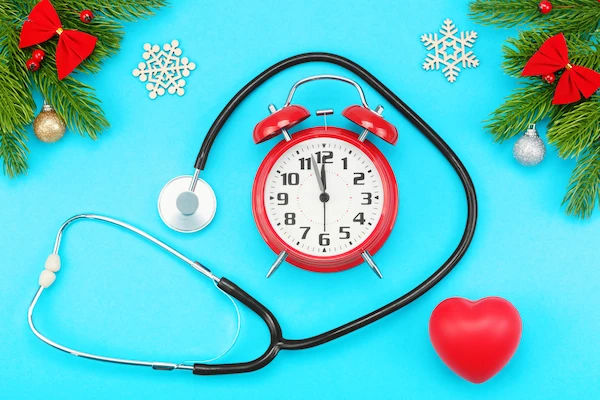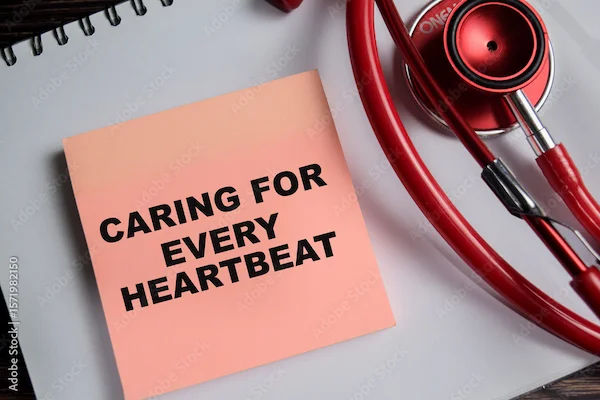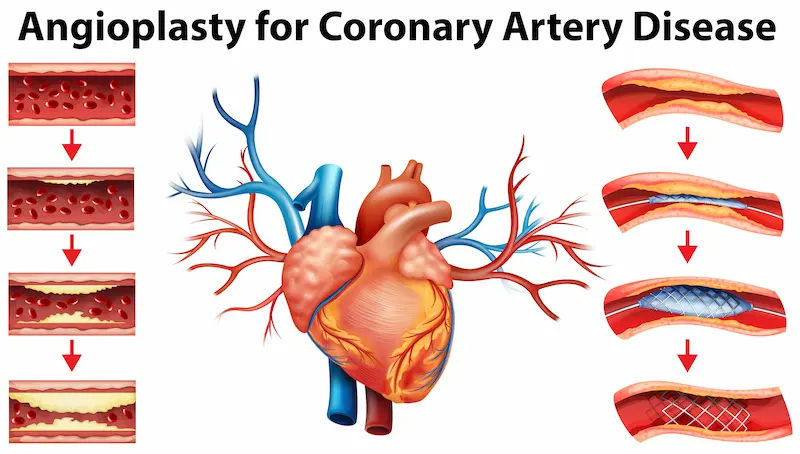- Female
- 18 Years
- 22/01/2025
I've been having this strange feeling in the middle of my chest, right about my breasts, for a couple of days now. It's hard to put into words but it feels kind of tight and heavy, and sometimes it even hurts when I breathe. I'm starting to get worried. Do you have any idea what might be causing this?
Answered by 1 Apollo Doctors
The symptoms you're describing, such as a tight and heavy feeling in the middle of your chest, discomfort when breathing, and difficulty describing the sensation, could be related to various conditions, including anxiety, stress, or even a panic attack; however, it's essential to consult a healthcare professional for a proper evaluation, especially if the symptoms persist or worsen, to rule out any underlying cardiac or respiratory issues.
Dr. Chandra Suggests...
Consult a Cardiologist
Answered 04/07/2025
0
0

More Cardiology Health Queries
View allI'm dealing with mild MVP and my MREF is at 60 percent. I've got a lot of anxiety and my stomach's frequently upset. Occasionally, I get palpitations, especially when I'm stressed out. What can I do to get rid of these symptoms?
based on your symptoms of mild mitral valve prolapse (MVP) with grade 1 mitral regurgitation (MR), anxiety, stomach upset, palpitations, and increased anxiety in stressful situations, I recommend the following treatment plan: 1. For anxiety, you can take a selective serotonin reuptake inhibitor (SSRI) like Sertraline 50mg once daily. 2. For palpitations, you can take a beta-blocker like Metoprolol 25mg once daily. 3. For stomach upset, you can take an antacid like Omeprazole 20mg once daily before breakfast. 4. Practice stress-reducing techniques such as deep breathing exercises, meditation, or yoga. 5. Avoid caffeine, alcohol, and tobacco as they can worsen anxiety and palpitations. 6. Follow up with your doctor regularly to monitor your symptoms and adjust treatment as needed. I hope this treatment plan helps alleviate your symptoms
Answered by 1 Apollo Doctors
I'm experiencing some pain in my shoulder and arm, and it seems to be affecting the left side of my chest too. It's making it a bit hard to breathe. My current weight is 68 kg. Can you help me figure out what this might be?
It sounds like you may be experiencing symptoms of a heart condition. The combination of pain in the left shoulder, arm, and chest, along with breathing problems, could be indicative of a heart issue. One common condition that presents with these symptoms is angina. I recommend you to take Aspirin 325mg immediately and call emergency services. It is important to seek medical attention promptly in such cases.
Answered by 1 Apollo Doctors
I'm a bit concerned because I've been experiencing a fast heartbeat after I climb stairs or if I'm walking in the sun for just about 10 minutes. Even while cleaning a room, my heart rate seems to go up rapidly. I'm 20 years old, weigh about 65 kg, and I'm 5.4 inches tall. Could you tell me what might be going on?
A fast heart rate after climbing stairs or walking in the sunlight is often due to your body's increased demand for oxygen during physical activity: Climbing stairs: When you climb stairs, your heart works harder to pump blood to your muscles, which increases your heart rate. This is called sinus tachycardia, which is a symptom, not a condition. Sunlight: Physical activity can cause your heart rate to increase.
Answered by 1 Apollo Doctors
Disclaimer: Answers on Apollo 247 are not intended to replace your doctor advice. Always seek help of a professional doctor in case of an medical emergency or ailment.




